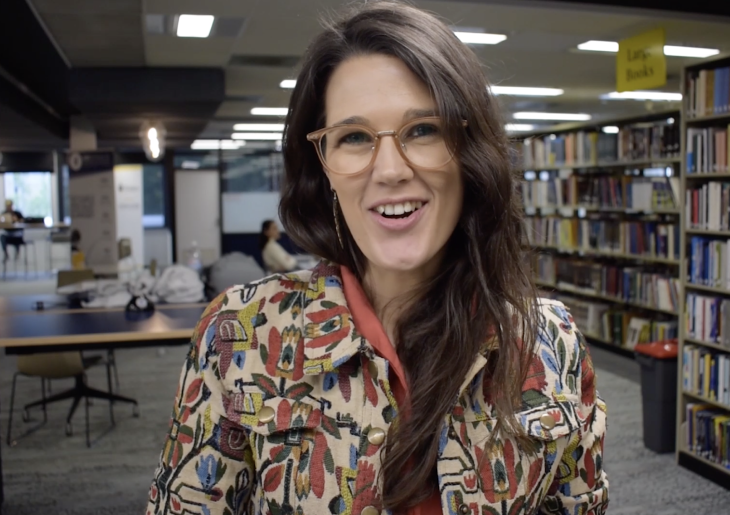
Hi all and welcome to the last Like a Boss of the season!
For the last few weeks, we’ve been talking about exams: how you can improve your focus, manage your stress, and use some evidence based revision strategies to get you over the edge.
End of semester also means that the summer is looming on the horizon. So for this week’s Like a Boss, I had a chat to two of the folks from Careers, Ursula and Jenny, to find out about how you can make the most of your summer. What opportunities should you look out for, how can you beef up your CV, and how can you have some fun and beef up your skills along the way.
How Can You Make the Most of Your Summer?
Ursula Bronecki – Flinders Horizon Award Senior Coordinator
There’s three key things that I recommend that students do to make the most of their summer.
- Reflect on your career goals. Take some time to reflect on your career goals and think about updating some important career documents like your CV and cover letter and get those into shape.
- Get some real-world experience. This is a great opportunity to get some real-world experience and we know that that’s something that employers really look for when they’re hiring new graduates. Have a look at casual positions that are out there, get some volunteering experience in your industry or field, look for what kinds of career placements there might be like internships or vocational programs that many organisations offer.
- Develop your professional skills. Explore some online MOOCS (Massive Open Online Course) like LinkedIn Learning – which is free for Flinders students! There are so many different courses you can explore like digital and data literacy, communication skills, teamwork, all of those professional things that are really going to help you in your career.
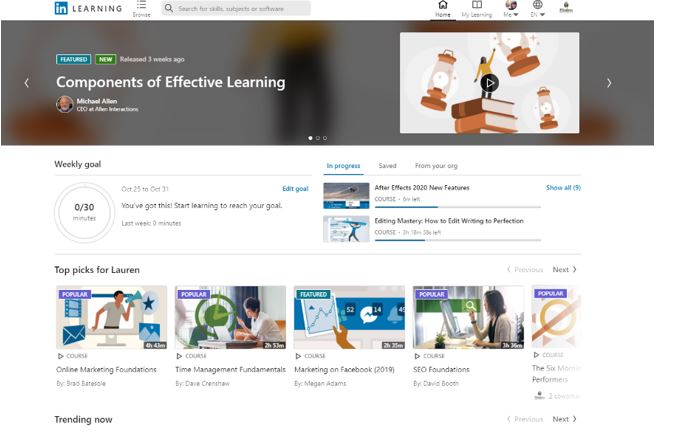
Jenny Barker – Career Development Consultant
Another thing that I’d recommend that you do is investigate potential graduate programs that are relevant to your degree program. There’s two great websites for that: GradAustralia and GradConnection.
On CareerHub, we also have job vacancies where we include internships, graduate programs and a range of resources that we link to for volunteer work.
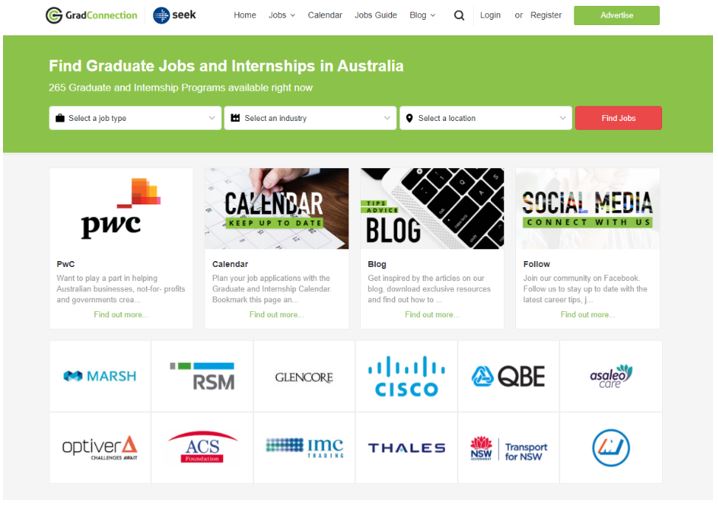
What are the Benefits of Volunteer Work and Internships?
Jenny: The benefits of doing volunteer work, internships and vacation programs are really in developing your transferrable skills, testing your interests – internships can be a really great way to get practical experience and turn theory into practice – and build relationships, so making connections and getting new referees.
There’s a fantastic website called Do Something Near You which means you don’t actually have to go very far to find some volunteering opportunities. Volunteering and internships are a great way to feel like you’re contributing to broader society, building feelings of wellbeing, connection with others, and confidence. Particularly if you’re full-time looking for work, this can be a great way to get out there and meet others.
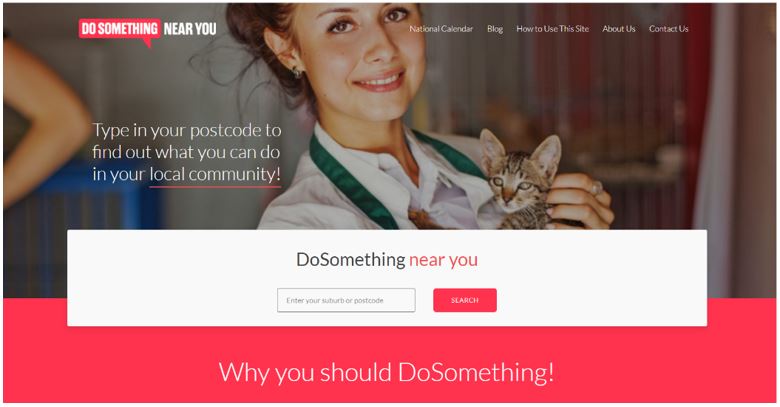
How Do You Find Opportunities?
Ursula: Start by asking around: friends, family, other students that you study with, lecturers. We know that a lot of job opportunities are in the hidden job market. Up to 80% of jobs aren’t advertised!
The next thing I’d recommend is to subscribe to a bunch of job alerts: Seek.com.au, LinkedIn, Volunteering SA and NT. Pick specific organisations that you might want to work for and go to their websites. They often have places where you can register your name and get any alerts to jobs that are coming up.
What Traps Should You Look Out For?
Ursula: The first trap to look out for, partiuclarly when you’re applying for jobs, is don’t assume that the employer knows anything about you or your past experience, for exmaple a past job. Give as much detail as possible, particualrly aroun the key duties or responsibilities you’ve had on a job. Assume they know nothing about you and make sure your resume and cover letter really tell a story about who you are, what your skills are, and what your strengths are.
The second thing is to be really prepared. Maybe have an elevator pitch ready to go, particularly if you get an unexpected phone call from an employer. You want to make sure you can really summarise your skills and why you’re interested in that position and organisation.
When you are looking for positions, make sure that your resume and cover letter are tailored to the actual job and organisation you’re looking at. That’s probably the biggest thing that we see going wrong!
Finally, make sure you have some sort of system or tool to keep track of all the job and volunteering opportunities that you’re applying for. That way you won’t get caught out when you get an unexpected phone call from an employer. So use a tool like Excel or Trello so you can keep track of everything you’ve applied for, who was the contact, and what was the job about.

Any Last Tips?
Jenny: Really, you can use your summer, everything and anything you pick up during that time, as long as you’re moving towards your career goals, getting out there and taking advantage of opportunities. Remember that any casual work you pick up is a really important foundation for transferrable skills and they are really valuable in the workplace. If you can, look for sector experience, things that are linked to your interests and your career goals. But if you find that you’re applying elsewhere, remember you’re testing your interests, learning new things about yourself, and you’re getting out there and having a go.
Ursula: Remember it can take a few goes, so just be open, stay curious, keep looking out for opportunities and have fun with it. It’s a great experience to meet new people. Enjoy learning about all the skills and strengths that you can offer.
Jenny: There are a whole raft of resources for where you can go to learn more about volunteering opportunities, grad programs, vacation work and internships. Go to CareerHub to start with, it’s available to all students on your OKTA dashboard. We have a whole range of resources there for you to update your resume, cover letter etc. Generally, let your fingers do the walking: a lot of desktop research!
Ursula: I’d also check out what’s happening here at Flinders. There’s likely to be a lot learning opportunities and workshops over the summer break.
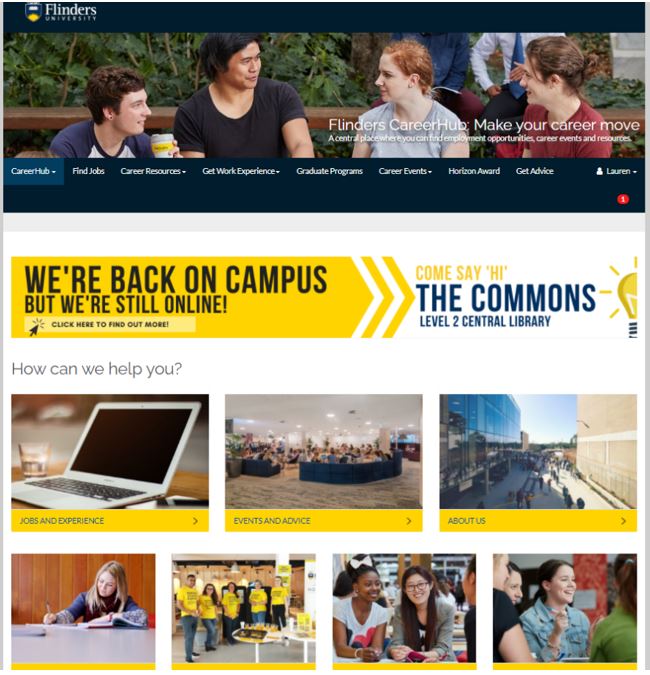
Thanks so much to Ursula and Jenny. I’ve linked to those resources at the bottom: remember that CareerHub is the place to go for that first entrance into that information.
This is, as I said, the last episode of Like a Boss for this series so thank you so much if you’ve been watching and I hope you’ve found it useful. A big thank you to Associate Professor Lydia Woodyatt, Dr Gareth Furber, and Melissa Veale and Stephanie Walker at Student Experience. Remember the Student Learning Support Service have been working on a range of new resources – including a new exam study guide – and are running exam workshops during weeks 12 and 13.
Good luck with those last assignments and best with your exams! I hope you all enjoy your summer break and that I’ll see you all online or on campus soon!
Resources:
CareerHub: https://careerhub.flinders.edu.au/
GradAustralia: https://gradaustralia.com.au/
GradConnection: https://au.gradconnection.com/
Do Something Near You: https://dosomethingnearyou.com.au/
Volunteering SA/NT: https://www.volunteeringsa-nt.org.au/
LinkedIn Learning: https://www.linkedin.com/learning/me

